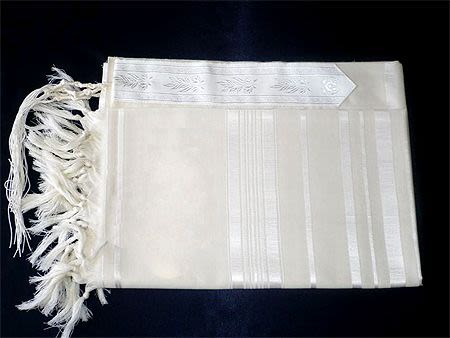
The Jellyfish Sting
There are so many reasons to get upset with people -someone says something that I disagree with, someone has more than I have, someone has an easier life than me…

It was late Tammuz and we decided to take the kids out to the beach. I figured it was okay because I would just stand up to my ankles in the water while my kids had a good time. It was summer I reasoned, and that’s what kids do at this time of year.
We went to a small coastline spot just north of Netanya. The sky was clear, the water was cool, and the sun was shining. You couldn’t ask Hashem for a more perfect day.
Then I saw them. Jellyfish. Lots of them. Gliding across the water like bats hovering in the sky. It was a bit frightening.
 The kids seem unfazed. Somehow they managed to avoid them. I reasoned that a jellyfish needs a second to contact its prey, then decide to sting so if I was fast, I could stay a step ahead.
The kids seem unfazed. Somehow they managed to avoid them. I reasoned that a jellyfish needs a second to contact its prey, then decide to sting so if I was fast, I could stay a step ahead.
My first lesson about animal defenses came pretty painfully. Jellyfish don’t bite or sting. They are covered in a venom that protects them from any type of foreign contact. The moment the first one touched me, I felt a painful sting. Then a burn.
The message was as clear: I don’t belong at the beach when the jellyfish are around.
Most in Israel agree that the jellyfish appear around Passover, leave after about a month, and then reappear in the middle of the summer, just about the time of the three weeks of mourning.
As much as the weather beckons, Jews don’t celebrate during the first 32 days between Passover and Shavuot, and the three weeks between the 17th of Tammuz, and when our Holy Temple was destroyed, the 9th of Av.
The mourning periods have been in effect for almost 2,000 years. They both began from tragedies emanating from the sin of baseless hatred, or not showing proper respect for our fellow Jew. This mitzvah is so vital, so important, so hard to fulfill that 20 centuries later, Hashem sent a small fish the size of my fist to remind me about it.
Thank G-d!
If I had to be judged by the amount of resentment I harbor towards my brothers, the small patch which got stung would remain untouched, and the rest of my body singed with venom!
I make a mistake that is so easy to make. Reading the daily news, I see a lot of powerful men and women that are my brothers and sisters. They are well dressed, groomed for success, and when they speak – it appears on page one. The mistake I make is thinking that simply because they look like their life has so much more money, influence, or glamor, they don’t face the same large challenges I do.
In presenting the powerful of the earth as perfect people, I fall into the fool’s trap of thinking that they don’t have any difficulties, or that because they have what the papers say they have, their difficulties aren’t as tough as mine. The very fact that these people are breathing means they have their own sets of ups and downs, and their own obstacles to overcome.
That’s enough to switch anyone from a feeling of resentment and jealousy to one of empathy and calm.
Then I go on Facebook and it all starts over again. Moment to moment reminders of what “they” have, and I want. The test never ends. It’s one thing to conceptualize the fact that everyone has their own flavor of adversity, but to internalize it, to actualize it, to make it a moment to moment reality takes a lot of work, and a conscious understanding that following the Tenth Commandment not to covet is a lifelong challenge.
How can I fix it?
Follow Hashem’s Instructions:
1. Judge your fellow with Righteousness. (Vayikra 19:15). Always look for the good in any situation. No matter what, find any argument you can that favors the person you are getting angry at, even if you are arguing with yourself.
2. Love your brother like yourself. (Vayikra 19:18). Loving your brother is a mitzvah. It leads to holiness, which leads to happiness in both this world and the next. To love your brother is to love yourself – to bestow goodness on your own soul, and kindness to your fellow Jew.
3. Ask yourself why you are so jealous. There is usually a very specific reason why you hate this person at this time. If you get to the real reason, you may discover that it isn’t something that they have, but rather, something that you don’t: a skill, or a character trait you know you are lacking but have the ability to develop.
4. DO SOMETHING! The greatest remedy for baseless hatred is to do something. Life is often more about what you want, then what you have. If this is the core of our hatred towards others, turn it to your favor. In simply starting a new blog, business, project, skill, or goal – you get to dream. You get to visualize yourself at the end of the journey you just started. By beginning to covet the person you are aiming to be, you stop worrying about what other people are involved in.
There are so many reasons to get upset. A Jewish leader says something in public that we disagree with. A political leader speaks towards Israel with a hostile tone. We see a perceived injustice where someone who we think doesn’t deserve “the good life” just posted on social media another example of how much he has it.
These are gifts from G-d. He is giving us the opportunity to put these steps into practice, and take the darkest point of humanity and transform it into the brightest light.










